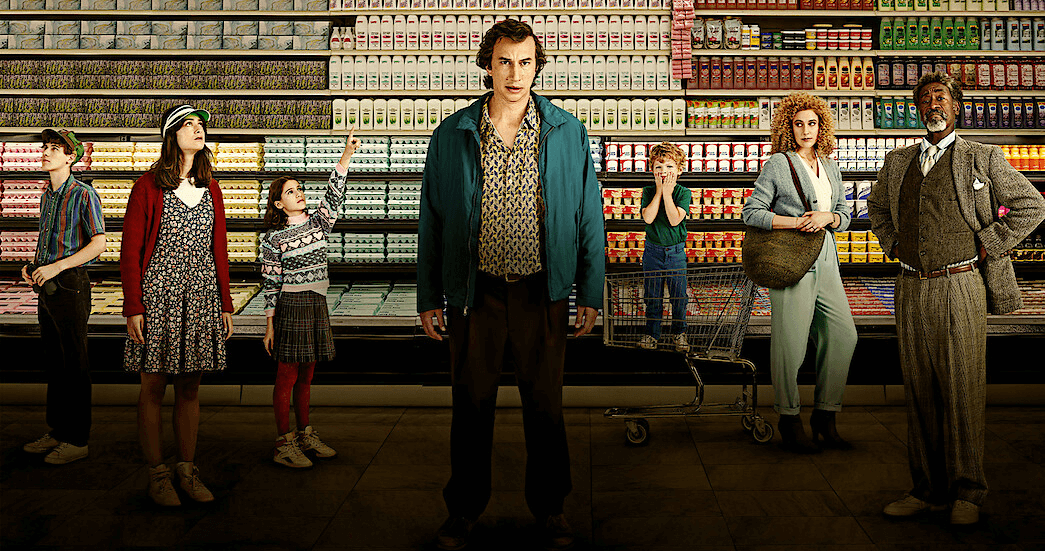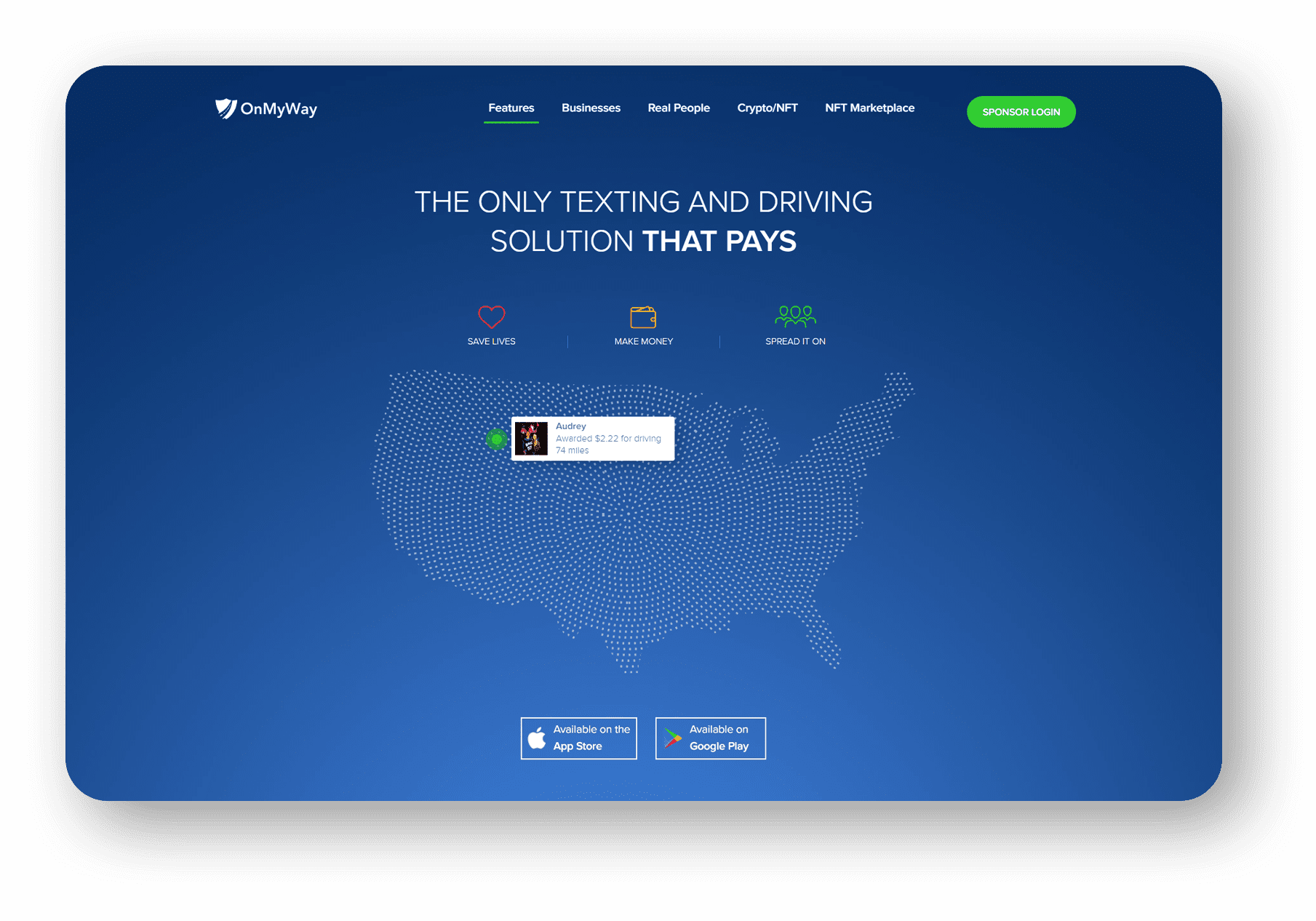
What do you do to forget that you will die?
Perhaps you throw yourself into altruistic activities, like teaching the elderly to exercise. Maybe you seek a sense of control by going to a supermarket, where the glossy aisles of products offer endless possibilities for decision and distraction. Or you could intellectualize endlessly to make your brain whir in such a way that it might ignore the dark cloud on the horizon. But in White Noise, the dark cloud won’t relent. Under its threat of doom, writer/director Noah Baumbach searches for comedy. But amid its bleakness and a jarring blend of genres, his latest is more dizzying than entertaining.
Based on Don DeLillo’s 1985 novel of the same name, White Noise stars Adam Driver and Greta Gerwig as Jack and Babbette Gladney, an upper-middle-class couple whose life in a college town is bustling but seemingly blissful. That is, until the airborne toxic event.
A random twist of fate plops a big black cloud in view of their windows, which pitches their kids into a frenzy of speculation, paranoia, and rationalizations. Should the family evacuate? Will the privilege of their big house in a nice town shield them from disaster? Does any of their actions truly matter when death is inevitable?
Noah Baumbach dips into horror and broad comedy in White Noise.
The cloud proves an inciting incident that pitches Baumbach out of his comfort zone of sophisticated dramedy. Sure, like the heroes of his other films (Frances Ha, The Squid and the Whale, Marriage Story), the Gladneys and their friends are a garrulous bunch, who can hyper-intellectualize everything from rock stars to parenthood and ennui. But cast outside the cozy anxieties of their home life, this family trips into new terrain for Baumbach, including realms of broad comedy and horror.
In sequences where the community is frantically fleeing, White Noise takes on a National Lampoon’s Vacation vibes, with Adam Driver as the flummoxed father, who pratfalls into preposterous gambles of parenthood, like retrieving a lost toy and racing blindly into a presumed shortcut. Though brief, these sequences are thrilling in part because they feel so unexpected from Baumbach. Even if you’re familiar with DeLillo’s novel, you might wonder what could come next, thanks to the seeming spontaneity of the film’s jumps in tone. Plus Driver, who hasn’t yet met a genre he can’t chameleon into, is captivating as a bumbling patriarch, capturing the absurdity of these situations while grounding humor in a bouncy self-importance that keeps the possible apocalypse from feeling too foreboding. Yet Baumbach navigates into terror.
That cloud rumbles upon Jack, like a slasher slowly lurking closer to an unwitting co-ed. The darkness looms as music by Danny Elfman grumbles with an electric sense of dread. Set in the ’80s, the film’s broad comedy bursts, horror scenes, and score play to aesthetic conventions of this era. But where Netflix’s Stranger Things holds nostalgia for this time and its big hair and neon attire, White Noise has a smirk to this sentimentality for those day — the decade when death loomed in the forms of the Cold War and the AIDS crisis, yet American culture seemed relentlessly positive and aspiration-obsessed.
Adam Driver and Greta Gerwig make a wild pair in White Noise.
As Jack, Driver is like a master juggler in his attempt to hold the terror of death at bay. For him, this includes balancing the endless chattering at home with his booming voice in lectures about Adolf Hitler, who he intellectualizes as an icon of death. The intensity that Driver has brought to his brooding villain in Star Wars and the caustic comic of Annette is channeled here into a bombastic lecture that veers into modern dance, with Don Cheadle as his partner, enthusiastically proclaiming the paralleled importance of Elvis Presley. Jack is a cocky and swaggering king of his domain until the cloud pitches him into a journey of self-doubt and challenging realizations. Then, he is a clown, and Driver leans into this downward spiral.
Meanwhile, Gerwig, who’s recurringly been Baumbach’s leading lady and creative contributor, initially embodies the go-go energy of the ’80s, from Babette’s ever-on-the-move sneakers to her angelic explosion of curly blonde hair. But beneath the bright smile and urgent reassurances to her spouse and kids, Babette quivers with an unspoken fear. She is a metaphor for the glossy veneer of the ’80s and the terror that lies beneath the aerobic fits. White Noise makes knowing her a mystery that Jack — with the help of their eldest (a sharp Raffey Cassidy) — must solve.
As the film follows their dubious detective work, Gerwig’s portrayal spins into darker terrain. Amid the rapid-fire banter, ferocious philosophizing, and scattershot plotting, she and Driver are compelling scene partners. So why did White Noise leave me cold?
White Noise fumbles its final act.
There’s a lot to admire in Baumbach’s White Noise. The earnest performance of his leads blends seamlessly with the boldly quirky portrayals from the supporting cast, which also includes Sam Nivola, May Nivola, Jodie Turner-Smith, and André 3000. The filmmaker’s branching into horror and broad comedy is refreshing and even thrilling. The dialogue not only boasts biting banter, but also a barrage of colliding conversations, where the point is not to process every line but perhaps be swept up in the sheer force of its noise and chaotic ideas. Yet amid all this conflict, chaos, and conversation, there’s frustratingly little flow.
Perhaps its jarring nature is the point, never allowing the audience to settle comfortably into a comedy that is ultimately wryly laughing at humanity’s attempt to ignore the discomfort of our own mortality. If so, congrats to Baumbach. I was riveted for the first half: leaping at jump scares, goose-pimpled in dread, smirking at the audacity of intellectual ego, and even cackling at abrupt physical comedy. The second half, however, lost me as it fumbled into a muddy path of noir and faith that makes its two hours and 19 minutes runtime feel achingly excessive.
Ultimately, though I admire the ambition of Baumbach’s adaptation, and how it pushed him as a filmmaker, I lost patience with his execution. After a while the shifts in tone feel too much like stuttering, turning the dialogue into an onslaught of exhausting lectures, the plot into a meandering plod, and the characters into abstractions rather than flesh-and-blood people. Perhaps devotees of DeLillo will be able to more easily tap into White Noise’s wavelength, but in the end, I was left wanting.
White Noise is now on Netflix.
OVERVIEW
OnMyWay Is The #1 Distracted Driving Mobile App In The Nation!
OnMyWay, based in Charleston, SC, The Only Mobile App That Pays its Users Not to Text and Drive.
The #1 cause of death among young adults ages 16-27 is Car Accidents, with the majority related to Distracted Driving.
OnMyWay’s mission is to reverse this epidemic through positive rewards. Users get paid for every mile they do not text and drive and can refer their friends to get compensated for them as well.
The money earned can then be used for Cash Cards, Gift Cards, Travel Deals and Much, Much More….
The company also makes it a point to let users know that OnMyWay does NOT sell users data and only tracks them for purposes of providing a better experience while using the app.
The OnMyWay app is free to download and is currently available on both the App Store for iPhones and Google Play for Android @ OnMyWay; Drive Safe, Get Paid.
Download App Now – https://r.onmyway.com
Sponsors and advertisers can contact the company directly through their website @ www.onmyway.com











